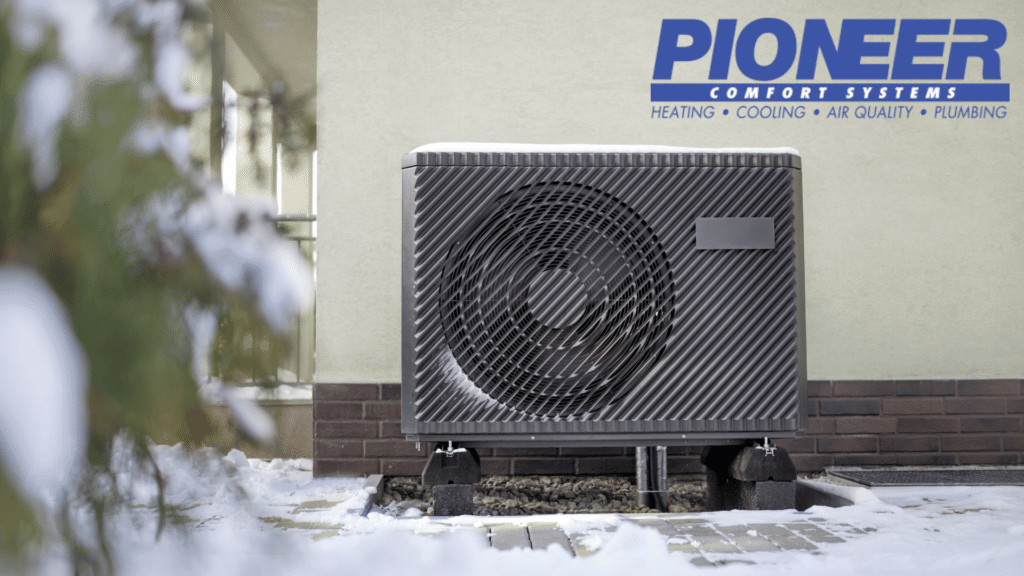We often get questions from Shreveport and Bossier residents about heat pumps vs. furnaces. While both a heat pump and furnace provide your home with heat, they are very different in how they generate heat.
What is a Furnace?
Furnaces use electricity, natural gas, or propane to generate their own heat. The process starts with igniting the burners with a particular power source. Then once the burners are lit, the heat exchanger warms up the outside air and distributes the heated air throughout your home.
A gas furnace works much like a hair dryer by blowing air over a heated element. If your home has well-maintained ductwork, the furnace should have no problem heating up your home when temperatures fall.
What is a Heat Pump?
Meanwhile, heat pumps generate heat much differently than furnaces. Not only is a heat pump a heater, but it’s also an air conditioner, dehumidifier, and air filter.
Heat pumps are multi-purpose because they don’t produce heat; they transport heat. Heat pumps draw heat from an outdoor unit, even during cold weather, and then transfer that heat into your home.
In the summer, heat pumps reverse that heating process to cool off your home by removing the warm air from your home and releasing it outside.
Pros and Cons of Installing a Furnace

Furnaces are the most familiar heating system because they provide heat for over 75 million homes across the United States.
There are several options when it comes to selecting furnaces – gas or electric furnaces. Still, natural gas is the more efficient option, even though it’s less efficient in comparison to heat pumps.
While they are a popular heating choice throughout the country, installing this heating system in your home has some advantages and disadvantages.
Advantages of Furnaces
- Gas furnaces are typically less expensive to install in comparison to installing a heat pump.
- Gas furnaces technology is relatively easy, and most homeowners are familiar with how they work.
- Gas furnaces are fast heating as long as they are properly maintained.
- There are a variety of furnaces to choose from. They vary based on the type of energy they use. You can have an electric furnace, propane furnace, oil furnace, or natural gas furnace. A natural gas furnace is the way to go if you live near a gas line.
Disadvantages of Furnaces
- Gas furnaces are way less energy efficient in comparison to heat pumps. In fact, they use up to three times more energy when temperatures drop.
- In order to heat your home with a gas furnace, you will need to have ductwork. Installing, repairing, and retrofitting ductwork is very expensive and requires a lot of maintenance. Ducts need to be cleaned periodically to ensure they are working properly.
- Gas furnaces are loud.
- When first turned on, furnaces can make your home smell like burning dust. They also have a difficult time keeping your home warm since they turn off and on a lot.
- Gas furnaces require more maintenance than heat pump systems. Due to the type of energy they use to heat your home, furnaces need to be cleaned and serviced to avoid any gas leaks or fires.
- Some brands of gas furnaces have short lifespans, especially when operating in extreme cold.
- Furnaces can only heat your home. You will likely need to install an air conditioner if you have a furnace.
- Depending on what type of furnace your home has, they can contribute to poor air quality.
Pros and Cons of Installing a Heat Pump

How does a heat pump work?
A heat pump is much more versatile in comparison to a gas furnace. Not only can they heat your home during the colder months, but they also act as air conditioners during the summer months. If you live in a mild climate, this heating system is probably the best way to go, although they have two disadvantages.
Advantages of Heat Pumps
- As stated earlier, heat pumps are multifaceted. A cold climate heat pump can replace a home’s entire heating and cooling system.
- An electric heat pump only needs to be serviced once a year.
- Cold climate heat pump systems are a less expensive air conditioning option and are three times more efficient than furnaces, making them the more cost-effective option.
- In certain areas, heat pumps are eligible for rebates and incentives.
- A heat pump system doesn’t run on fossil fuels, so there is no carbon monoxide poisoning risk. Instead, heat pumps run on electricity which is a much cleaner form of energy.
- The typical heat pump is quiet.
- Unlike furnaces, heat pumps provide more comfortable heating energy that doesn’t dry out the air.
- Heat pumps don’t require any ductwork. If your home has an existing ductwork system, you can utilize it by installing a mini-split system or whole home system that will individually heat or cool the indoor air in each room in your home.
Disadvantages of Heat Pumps
- The upfront installation cost for a heat pump system is more expensive than a furnace. Although, if you decide to go the heat pump route, we have financing options and specials available at Pioneer Comfort Systems.
- Heat pumps struggle to heat homes if there are below-freezing temperatures outside. Homeowners that live in colder climates might want to consider a different system or a backup heat source. Since we’re in Louisiana, those freezing temperatures don’t happen too often around here, but heat pumps can ice over.
Heat Pump Vs. Furnace

When it comes to heat pumps and furnaces, there are many factors that go into the heat exchanger, heat pump vs. furnace debate.
The most important one is to think about the climate in which you live. Homes in warmer climates would better benefit from a heat pump compared to a furnace since a furnace does not have cooling abilities.
Depending on where you live, some places offer dual fuel systems, which is when a furnace is installed with a heat pump. One option when selecting a dual fuel system is installing gas furnaces along with air-source heat pumps. This option is great for colder climates since heat pumps struggle to provide heat in extremely cold climates.
Dual fuel systems work together by measuring the outdoor temperature to determine which heating element will be the option to heat the home. Homeowners can save up to 50% on heating costs when using a dual-fuel system.
FAQs
Do Heat Pumps Use Natural Gas?
Typical heat pumps use electricity instead of fossil fuels. This is yet another reason that many homeowners like to go the heat pump route when installing a heating system in their homes.
There are three different types of heat pumps – air source heat pumps, ground source heat pumps, and water source heat pumps and they all use electricity for their heat pump technology.
If you’re looking to improve your energy efficiency and air quality, look no further than the heat pump.
Which is Cheaper to Run: a Heat Pump or a Gas Furnace?
Heat pumps are generally cheaper to run in comparison to gas furnaces. This can vary, though, depending on the energy costs where you live. Heat pump systems use less energy compared to gas furnaces and produce the same amount of heat.
If you want to reduce heating costs and keep your heating unit as long as possible, you’ll want to invest in Shreveport regular heater maintenance services.
Are Heat Pumps Noisy?
Heat pumps are quieter than the average air conditioning unit. The indoor and outdoor unit make some noise, around 60 decibels, equivalent to the sound of a normal conversation or moderate rain.
Can a Heat Pump Replace a Furnace?
A heat pump can replace a furnace, and they can even replace an air conditioner. Replacing your furnace with a heat pump will significantly improve your home’s energy efficiency since a heat pump system acts as an air conditioner, dehumidifier, air filter, and heater.
Call Pioneer Comfort Systems For All of Your Shreveport Heating System Needs
Whether you already have a heat pump or are looking to replace your furnace with a heat pump, call the experts at Pioneer Comfort Systems. If you’re ready to make the change from a furnace to a heat pump, our Shreveport heating technicians will help you determine the best heat pump technology for your home.
Not only is it more energy efficient, but it will also save you money in the long run. While installing a heat pump might be expensive up front, we offer local HVAC specials and financing options to our customers.
No matter your heating needs, we have you covered at Pioneer Comfort Systems. Call us at (318) 378-5729 to schedule your heating service today.

